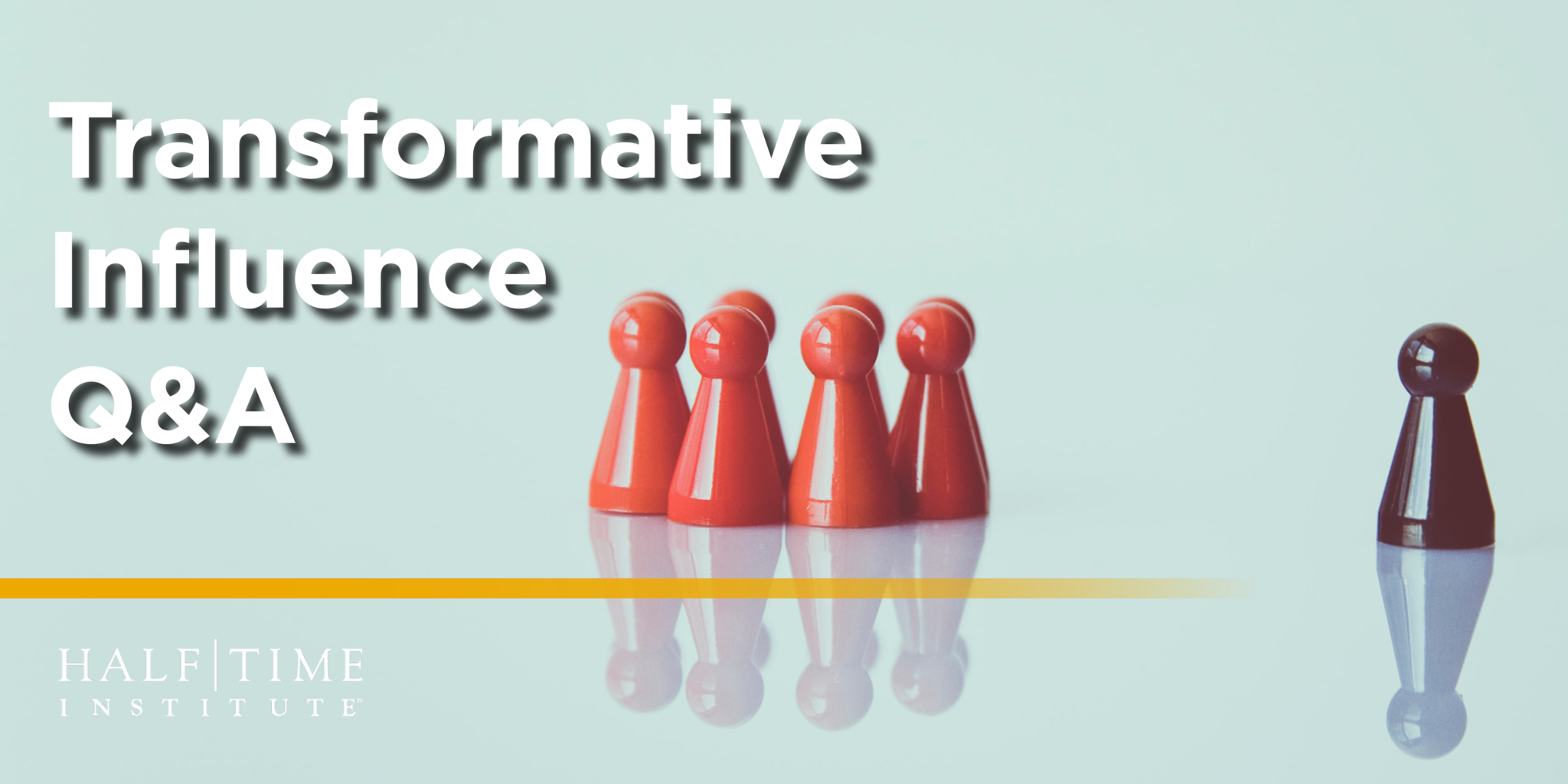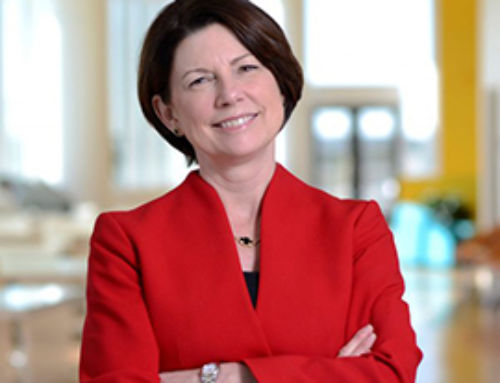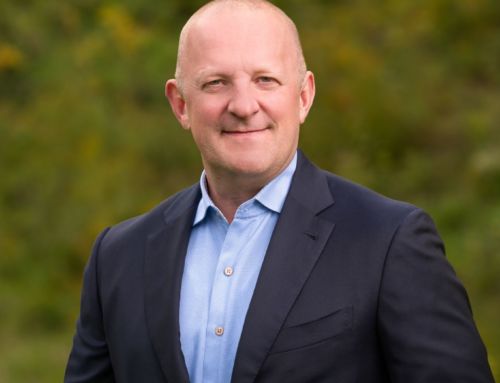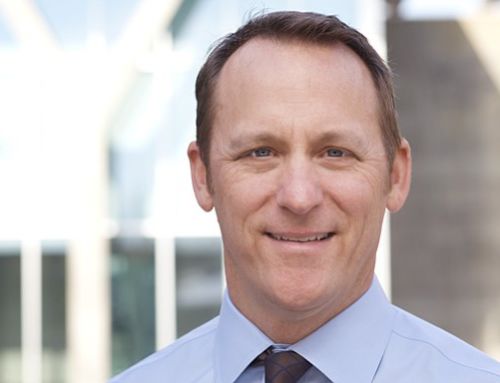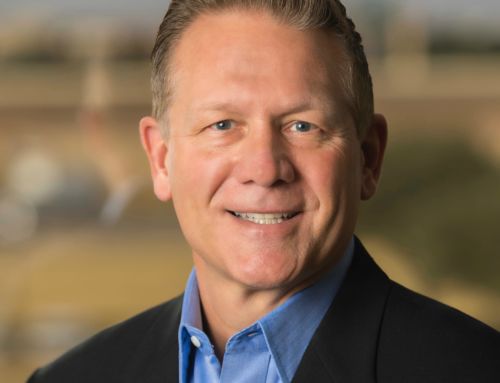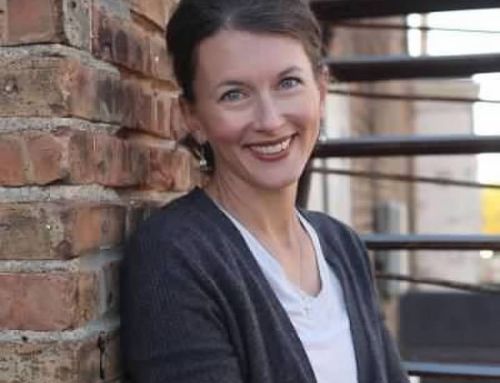Leaders confronting the current social and economic challenges could learn a lot from a CEO who survived the Great Recession of 2008 by transforming his company’s culture.
Halftime alum Walt Rakowich is that CEO, and the lessons from his story are greatly applicable today.
Walt was appointed CEO of global real estate company Prologis at the height of the Great Recession of 2008. At the time of his appointment, the company’s stock had dropped from over $70 per share to approximately $2 per share in 10 months, making it the third-worst performing company in the S&P 500. But in just three years, he helped return Prologis to profitability and recognition by The Wall Street Journal as “one of the commercial property turnaround stories to come out of the downturn.”
Walt achieved this multi-billion-dollar turnaround in the last recession with an approach he calls “transformative influence.” He shares this practice with today’s challenged leaders in his timely new book Transfluence: How to Lead with Transformative Influence in Today’s Climates of Change (Post Hill Press, September 29, 2020).
We recently connected with Walt to learn more about his new book, his halftime story, and the wisdom he has gained along the way:
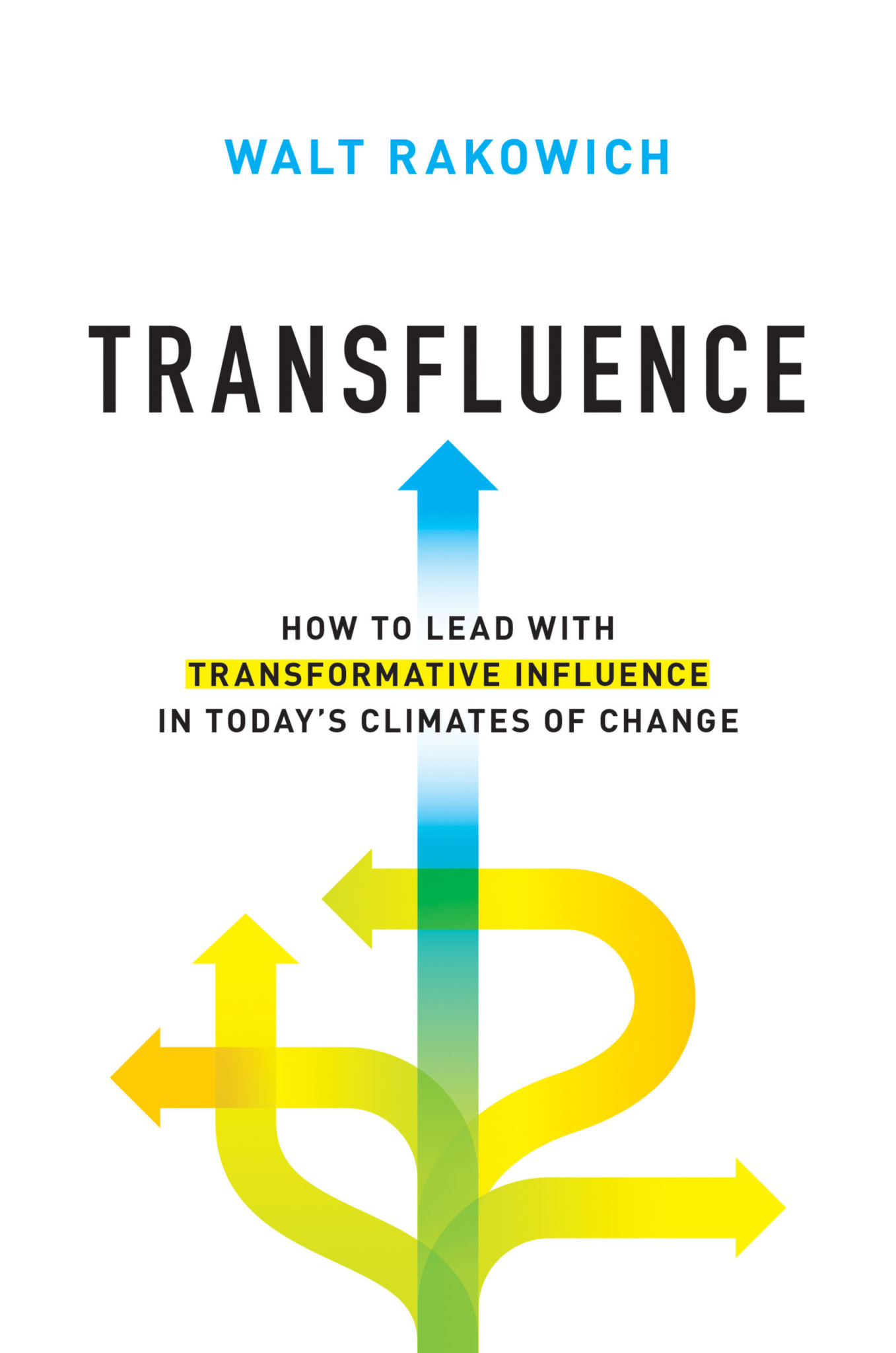
Q. How did you get involved with Halftime?
A. On a ski trip in 2006, a friend suggested I check out the book Halftime by Bob Buford. I was in a season of transition in my career, on the verge of leaving my leadership position at Prologis. The book spoke to me, and while I wasn’t sure what would be next, the idea of steering the direction of my life from success to significance really resonated with me. In 2007, I signed up to attend a Halftime Institute program and brought two friends along as well. During the event, I sat next to Bob at dinner and got to pick his brain on the impact that the sale of his cable business and death of his son had on the trajectory of his life. From our conversation, I knew that I was at an inflection point and wanted more. Soon after, I spoke with the board of my company and let them know I was stepping down. Little did I know that my crucible moment of coming back to lead the company through a crisis was just months away.
Q: What influence did Bob Buford have on your life?
A. Bob instilled within me a desire to finish strong. Before my conversation with him over dinner that night, I had never really thought about God’s calling for me to finish well extending beyond the workplace. Bob got me thinking of how I might make a global impact and connected me with others in the Halftime Network who could help me along the way. The time he spent with me offering encouragement and ideas of what it takes to influence others sticks out in my memory the most. In fact, when I arrived at a milestone moment while finishing Transfluence, I wrote him a letter to express my gratitude for his part in my journey and what I wish I could share with him if he were still with us. The seeds of the book were planted with some of the guidance and insight that I received from our time together. Ultimately, Bob taught me that no matter what we’ve accomplished, there’s always more for us to do. I’m not done until there isn’t any more energy left.
Q. What are the guiding principles of leading with transformative influence?
A. To wield the kind of transformative influence that’s needed to strengthen a culture and balance sheet, leaders need to overcome their fears and pride, build transparency into their leadership, develop a strong core of authentic values, and passionately lead with a meaningful purpose.
Q. When faced with a crisis or challenge, what do leaders need to do to have transformative influence on others?
A. It starts with building trust, which I believe is the most important ingredient for leadership success. I think there are three behaviors you should focus on as a leader in this environment, or for that matter, any environment, to build trust. I call them the 3:H Core. The first “H” is humility. As a leader, you must get out of your own way. Leadership requires a recognition that it’s not about you. Your job is to lead and influence others. That requires putting your pride and fears aside. The second “H” is about honesty. Leaders must tell the truth and communicate over and over again. Transparency and honesty always win in the long run. And if you’ve dealt with your fears and pride, you’re in a much better position to be transparent. People want to understand what you’re thinking as a leader. And perceptions matter. Sometimes silence is perceived as being disingenuous. Generally, it doesn’t help build trust. And the third “H” is to act with a heart for other people—to be human. Leaders who act with empathy and recognize others succeed at building trust. It’s not easy because we all have biases. But it puts people at ease when you meet them where they are.
Q. What did you do as a leader to give your people hope in a time of crisis?
A. When I first took over Prologis, we were on the verge of bankruptcy and I feared that I didn’t have all of the answers to prevent us from failing. Why did I fear it? Because CEOs are supposed to have the answers and I feared failure. I felt good about the steps we were taking but I was in no position to give our troops hope because I wasn’t sure how it was going to play out. So, you know what I did? I told them what I felt. I told them we didn’t know if we were going to make it, but I felt good about the direction we were heading, and we were making the best decisions that we could. That’s how I dealt with uncertainty— through transparency and honesty. In that way, I believe we built trust. Months later when we were able to see more light, we could provide the much-needed hope that people were looking for.
Q. Why do you believe leaders need to show vulnerability now more than ever?
A. Because it’s human and therefore it’s powerful. I learned the hard way with a goose egg on my head to show for it. After being told one night by my financial team that we were likely to go bankrupt, I left the room because I felt light-headed. Minutes later, I fainted and hit my head on the corner of a desk in an empty office. I was completely knocked out for 10 minutes and there was a pool of blood on the floor. After I returned to my colleagues with a knot the size of an egg on my head, I realized the only answer was to tell the truth and be vulnerable. I feared bankruptcy and didn’t have the answers. Leaders are supposed to have the answers and I didn’t. But a funny thing happened that evening. People felt empowerment like never before. By sharing that I didn’t have all the answers, I leveled the playing field so everyone felt empowered to contribute. They told me they would do whatever it took to keep us solvent. And you know what? They did. I didn’t, they did. Do I think leaders need to always show vulnerability? No. But I think they should be willing to do so in appropriate times. It’s one of the strongest expressions of honesty because it’s not easy. And used in the right way, it can create an amazing amount of trust among those you lead.
Q. What does it take to lead in the three dynamic climates you describe in your book? The climates of access, diversity and acceleration?
A. We live in a world with greater access to information; more diversity in people, geography and choice; and accelerating progress. And these climates create tremendous opportunities for enhancing productivity, widening our spectrum for growth and creating faster progress as a society. But they create challenges for leaders because we live in glass houses where the world can see our every move. In the midst of these challenges, the world craves leaders who demonstrate a high degree of empathy, transparency and authenticity, looking outward to others and not inward at themselves. Great leaders can hold diverse groups accountable and yet be sensitive to their changing needs, can demonstrate quick thinking and decisive action with informative openness and demand excellence but bring a sense of balance and purpose. That’s transfluence. It’s leadership that is effective and can have a transformative influence on the lives of others.
Q. What’s the first step anyone could take to start applying your advice tomorrow?
A. Remember, leadership is not about you. It’s about the influence you have on others. Embracing that mindset changes how you see things, so that’s the first step. Be a transfluent leader so you can make a difference in the lives of those you lead.
At Halftime we are a global fellowship of friends who leverage our leadership capacity and influence for God’s purposes. We are committed to finishing well together. If, like Walt, you crave more significance but don’t know where to start, we would love to be a resource for you. Consider getting connected with a Halftime Certified Coach or cohort for more clarity, joy, and impact in the season ahead. Learn more below.
ABOUT OUR FEATURED ALUM, WALT RAKOWICH:
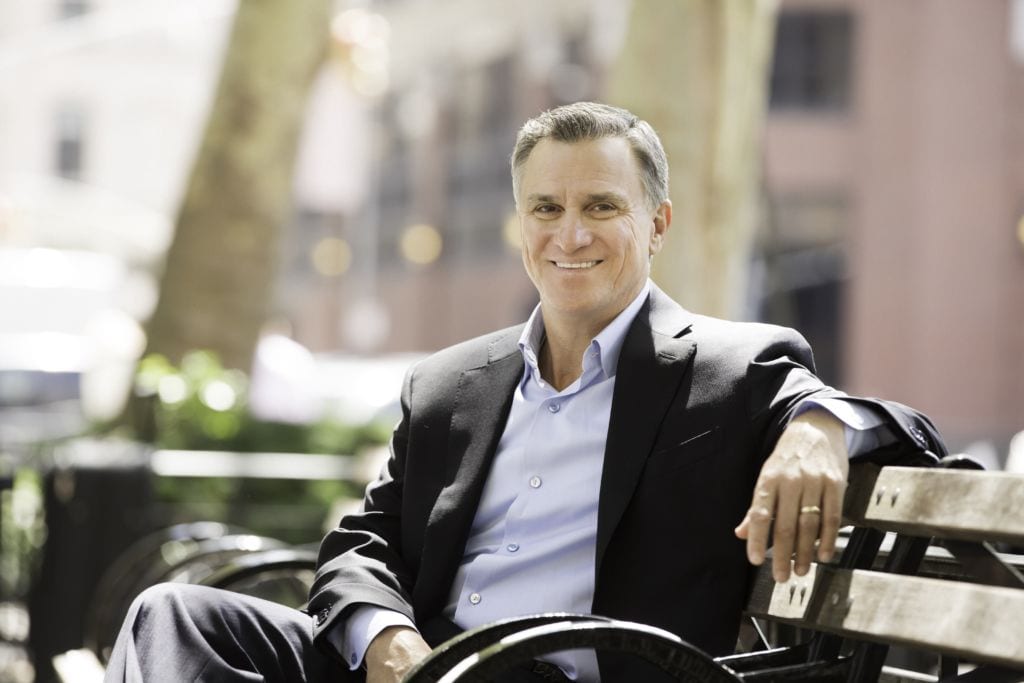 Walt Rakowich is the former CEO of Prologis, a NYSE company and a member of the S&P 500, a global real estate company that was near collapse when he took over as CEO in 2008. During the economic downturn, the Prologis stock had dropped from over $70 per share to approximately $2 per share in 10 months, making it the third-worst performing company in the S&P 500. After Walt joined as CEO, he quickly implemented a change in culture through transparency, orchestrating a dramatic turnaround and restoring its position in the industry.
Walt Rakowich is the former CEO of Prologis, a NYSE company and a member of the S&P 500, a global real estate company that was near collapse when he took over as CEO in 2008. During the economic downturn, the Prologis stock had dropped from over $70 per share to approximately $2 per share in 10 months, making it the third-worst performing company in the S&P 500. After Walt joined as CEO, he quickly implemented a change in culture through transparency, orchestrating a dramatic turnaround and restoring its position in the industry.
In addition to speaking to audiences on a range of leadership topics, Walt also serves on a number of corporate and philanthropic boards.
Before starting his business career, Walt attended the Pennsylvania State University where he received his BS in accounting. He went on to earn his MBA from Harvard Business School. In his free time, Walt enjoys traveling, mentoring youth and participating in a wide range of community service initiatives. He and his wife Sue have two adult children and reside in Colorado.
